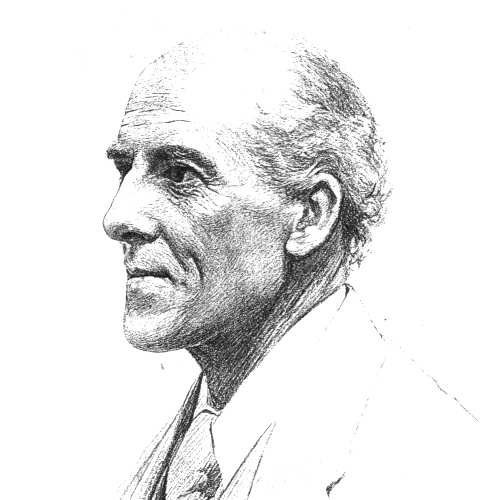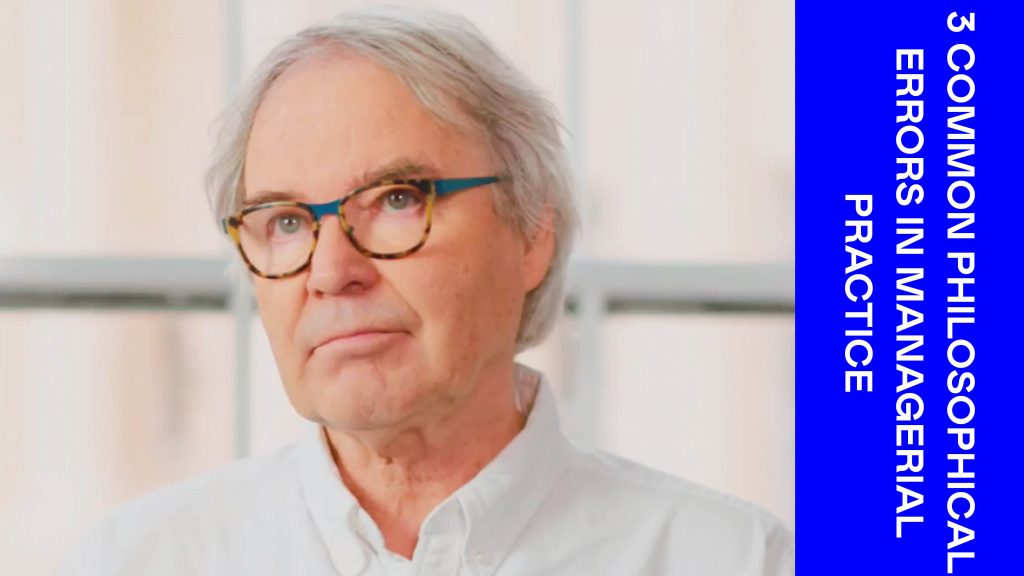Philosophy began as a natural conversation amongst inquisitive people. It sought to address some of the fundamental questions to which there are no obvious answers and deal with everyday issues in thoughtful ways. What is the nature of things? How should we treat each other? What is the meaning of life?
For the Classical Greeks, philosophy was a practical, everyday activity. It was not until much later, after the Renaissance, that philosophy became an academic discipline and the reserve of the intellectual elite. And for the intelligent layman, philosophy became largely indecipherable.
Today, however, there are signs of a change of heart amongst philosophers. In the writings of André Comte-Sponville, Alain de Botton and Julian Baggini, for example, philosophy is once again addressing universal human issues in plain and beautiful language.
Even in business schools, driven as much by the curiosity of their students as by the enthusiasm of their professors, philosophy courses are being introduced to the curriculum. And this refreshing approach is inspiring a new set of philosophical questions for managers in the business world. What matters? What is fair? What is right?
In this article, we examine three philosophical errors in managerial practice that are being revealed by this new wave of philosophical questioning: reifying collectives, chasing goals and reasoning inductively.
Error #1: Reifying collectives – serving the organisation, working for the company and acting as a human resource

“Ask not what your country can do for you; ask what you can do for your country.”
These are the famous words that John F Kennedy spoke in his inaugural address. They reify the nation state and we are invited to think of our country as having a mind of its own, with its own purpose, values and agency.
Reification is the process of taking something abstract, such as an idea or concept and treating it as though it were concrete and assigning it a real existence. This is what Milton Friedman, the Nobel prize-winning economist, wrote in response to JFK’s declaration:
“The free man will ask neither what his country can do for him nor what he can do for his country. He will ask rather ‘What can I and my compatriots do through government to help us discharge our individual responsibilities, to achieve our several goals and purposes, and above all, to protect our freedom?’ And he will accompany this question with another: ‘How can we keep the government we create from becoming a Frankenstein that will destroy the very freedom we establish it to protect?’”
Freedom is imperilled when we think of nations, economies, societies and corporations as real, with rights of their own.
And every time we reify the collective, we diminish the individual. Subtly but remorselessly, we render the individual less accountable, less powerful, and less confident in their own agency.
Equally, all sorts of things start to go wrong when we think of ourselves as working for a company or serving an organisation. It is more human, more productive, and certainly more ethical to reverse the direction of allegiance.
We should be thinking in terms of the company working for its employees and the organisation serving its members.
By reifying the company, we are giving it a life of its own, as though it possessed, in its own right, a superordinate set of aims and values not necessarily related to those of the people who have chosen to work together under its auspices.
Employees find themselves being judged entirely according to their contribution to the goals of the organisation, instead of the organisation being judged according to its contribution to the wellbeing of the employees.
This is why human beings have come to be treated as human resources.
This explains the role that ideology, whether of the left or the right, has played in history. As soon as we reify the collective – whether in the form of nation, society, class, economy, or corporation – we surrender part of our own agency. We treat ourselves – and each other – as no more than the instruments of an abstract, impersonal ideal ripped free of its moral bearings. We treat each other as means, not ends. We disobey the categorical imperative.
In a society that obeyed the moral law, the corporation would be conceived as no more than a roof under which a group of people come together to accomplish what they could not achieve separately.
In 100 years or more, we will look back on notions of employment, management and leadership much as today we look back on indentured servitude (or even slavery) and wonder how we ever tolerated it.
The whole rigmarole of reporting to a boss, or following a leader, or pursuing a plan will seem not only absurd and inhuman but debased and iniquitous. Together with our shame will be a measure of incredulity that we surrendered so much selfhood, dignity, ethical code and sense of what matters in life to reified collectives.
Error #2: Chasing goals – managing by objectives, planning for the future and committing to an outcome

“It needs to be able to carry four farmers and over 100 pounds of their goods and harvested crops to market over unpaved roads and manage something like 80 miles per gallon while doing so. And they might be carrying eggs, so make sure the car can drive across a ploughed field while it’s loaded up with eggs, and that the eggs won’t break. Also, sometimes they might need to carry big stuff like furniture, so make sure you design in a solution for that.”
This was the design brief that produced the Citroen 2CV. Designed in the late 30s, launched onto the French market in 1948, and only ceasing production in 1990, the car remains an iconic product of extraordinary popularity.
The 2CV was the result of a very unusual approach to business. It was the answer to a pertinent question. The Citroen board had set the engineers an enticing problem, with no mention of sales targets, financial goals or shareholder interests.
“All life is problem-solving,” said Karl Popper, the greatest science philosopher of the twentieth century. As a species, we are at our best solving problems. This is the source of our success on this planet. We simply love the challenge of answering difficult questions. We are in our element confronting unsolved issues that we deem to be interesting and important.
Yet, this is a million miles away from the goals that typically characterise the commercial workplace – profit, market share, sales growth, net margin, return on investment, and so on.
If Citroen had focussed on shareholder value rather than broken eggs, we would have ended up with the Citroen 1300.
In today’s world, we have become obsessed with the pursuit of mundane objectives. We select the same goals as everyone else and expect a different outcome. We dream up future definitions of success. We write plans and set milestones. And then we torture ourselves in the attempt to realise our goals.
Life becomes a never-ending obstacle race. In other words, we rarely achieve what we set out to achieve. Life plays tricks with ambition. Those things on which we set our heart are the very things we find it most difficult to attain.
We see this all the time in business. Those firms that choose profit, or shareholder value, as their ultimate goal, end up being considerably less profitable than those that pursue more intrinsically motivating goals, such as the design of attractive products.
In fact, the workplace is generally ill-designed for happiness and personal fulfilment, particularly in the case of companies employing more than 150 people. Nowadays, the typical day job can be characterised as a combination of earnest effort (long hours, relentless urgency, and frenetic activity) and mundane ideas (banal strategies, second-hand ideas, and safe outcomes). When work is taken too seriously, and playfulness is regarded as irresponsible, the human mind closes down.
We need to lighten up. Most of our efforts amount to very little. Ideas that make a difference are few and far between. Endlessly chasing numbers and measuring performance diminishes the time and freedom of mind required to develop clever ideas that could contribute something unique and meaningful to the world.
If we gave imagination a freer rein we would be astonished by the quality of the resulting ideas, particularly if these ideas were the response to highly creative questions, self-set by small, diverse, self-managing groups. This is the setting in which, since time immemorial, humans have been at their best.
Here’s the question. What is your 2CV? Or better still, what is your question? In other words, what is the question that will bring forth your inner 2CV? Questions, not objectives, are the secret of human fulfilment.
Error #3: Reasoning inductively – observing the market, analysing the data and drawing conclusions
“Let us be quite sure that whenever we come across a conclusion in a scientific work which does not flow from the classification of facts, then we are dealing with bad science.”

This is how Karl Pearson, the founder of the modern discipline of mathematical statistics, defined the logic of scientific discovery. He believed that the method of science was a process of inductive reasoning. Every discovery starts with unbiased observation of the data and by a process of classification reduces these data to a pattern called a law of nature.
In a revealing comment on Pearson’s methodology, Peter Medawar, a Nobel Prize-winning biologist, remarked:
“Poor Pearson. His punishment was to have practised what he preached, and his general theory of heredity, of genuinely inductive origin, was in principle quite erroneous.”
From school onwards, we are taught to believe that scientific theories summarise the facts, that laws are derived from observation, and that rationality is a procedure for deducing conclusions from data.
In business, this data reduction method is called analytics. In the old days, it was called marketing research. Today’s fashionable view is that insights and strategies can best be gleaned from the analysis of big data.
Indeed, business has always bought into this model of rational decision-making, accompanied by a subtle, often tacit bias against intellectual speculation and bold conjecture. Most managers try not to move too far ahead of the data at hand. They prefer to make judgments that are based on hard evidence.
However, there is a danger. To the extent that our strategies are circumscribed by what is objectively measurable, we are limiting ourselves to an unnecessarily small, and rather unimaginative range of options.
In other words, we set our strategy according to what is provable rather than what is plausible or possible. This is not strategy at all, but intellectual timidity and commercial cowardice. The more narrowly we define the boundaries of rational behaviour – and the more fearful we are of making even the slightest unprovable assertion – the more banal the resulting decisions are likely to be. If we equate rationality with inductive reasoning, we will always come to conclusions of no greater scope than the data to hand, and no more inspiring than business as usual.
The art of business is to steel our courage to act on the world without already knowing the answer, notice what happens and frame our thoughts and theories accordingly. Time spent gathering data in the hope that it will yield insights and lead to the truth is largely time wasted. The role of facts is essentially one of testing ideas rather than inspiring them. It is therefore more rational to act more to think more creatively than to think more to act more carefully.
The overriding value of philosophy is that it enables us to see the familiar with new eyes. We bring a fresh perspective to old habits. Everything we take for granted is there to be questioned. We acquire a more sceptical habit of mind. We acknowledge our own fallibility. We are comfortable entering into conversations where our ideas are contested and where we render ourselves intellectually and morally vulnerable. We are open to new ways of being, seeing and thinking.
Business is the ideal test bed for philosophical ideas and business schools are thankfully recognising this fact. Since 2010 and the financial crisis, philosophical questions have increasingly been asked. Business is a moral activity as well as a material one, and the values are deontological in that actions should be judged, not on their outcomes per se, but on the ethical rules to which they adhered. The guiding idea is the reciprocal duty we owe to each other as persons.
CEDEP’s newly-launched Management & Philosophy (M&P) programme delves deep into these philosophical questions and explores how to use philosophical analysis to push the limits of contemporary management.
Jules Goddard is Co-director of this mind-expanding programme commencing in January 2022 and we are delighted to announce that registrations are now open!
For more information about the programme and how to register, please contact Muriel PAILLEUX at muriel.pailleux@cedep.fr
